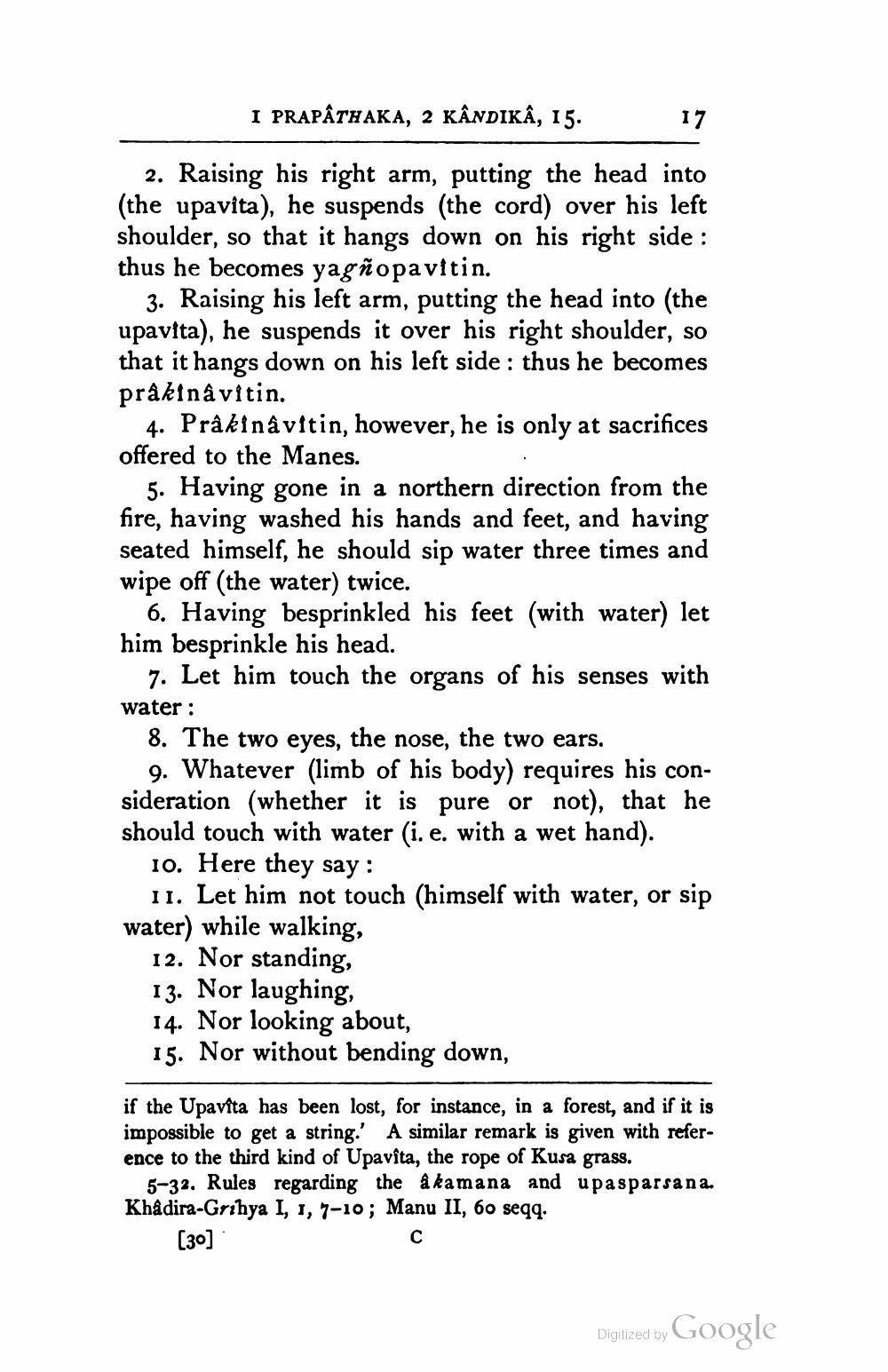________________
I PRAPATHAKA, 2 KÂNDIKA, 15.
17
2. Raising his right arm, putting the head into (the upavita), he suspends (the cord) over his left shoulder, so that it hangs down on his right side: thus he becomes yagnopavitin.
3. Raising his left arm, putting the head into (the upavita), he suspends it over his right shoulder, so that it hangs down on his left side: thus he becomes pråkinâvitin.
4. Prâkinâvitin, however, he is only at sacrifices offered to the Manes.
5. Having gone in a northern direction from the fire, having washed his hands and feet, and having seated himself, he should sip water three times and wipe off (the water) twice.
6. Having besprinkled his feet (with water) let him besprinkle his head.
7. Let him touch the organs of his senses with
water:
8. The two eyes, the nose, the two ears.
9. Whatever (limb of his body) requires his consideration (whether it is pure or not), that he should touch with water (i. e. with a wet hand).
10. Here they say:
11. Let him not touch (himself with water, or sip water) while walking,
12. Nor standing,
13. Nor laughing, 14. Nor looking about,
15. Nor without bending down,
if the Upavita has been lost, for instance, in a forest, and if it is impossible to get a string.' A similar remark is given with reference to the third kind of Upavîta, the rope of Kusa grass.
5-32. Rules regarding the âkamana and upasparsana. Khâdira-Grthya I, 1, 7-10; Manu II, 60 seqq.
[30]
C
Digitized by
Google




